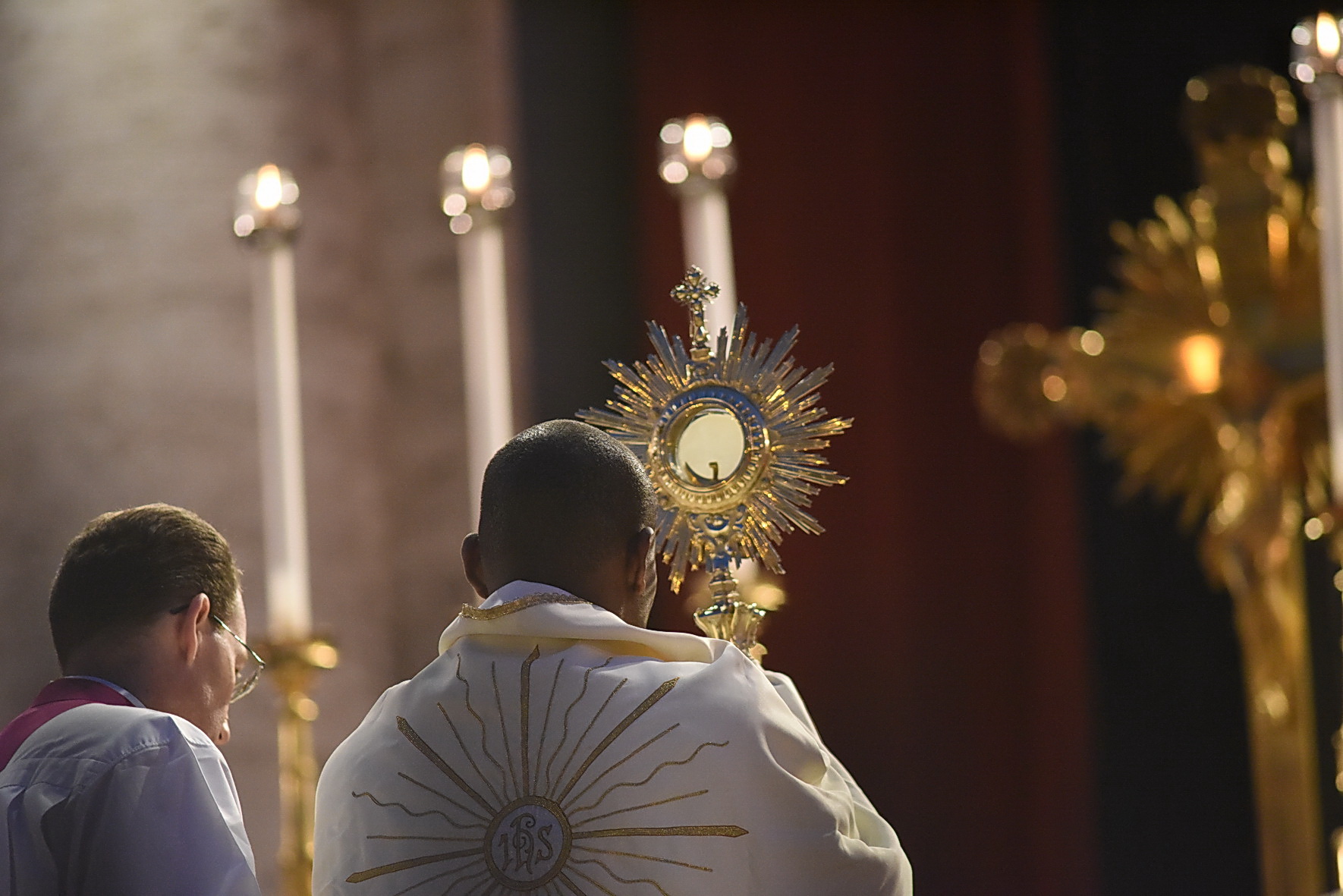Reflection
If Christian men and women become Eucharistic people, hence capable of intercession and Eucharistic thanksgiving, they will bring good and peace to the cities. “The world stands by reason of the intercession of Christians”, Aristides wrote in his Apology. This intercession encompasses active solidarity, a loving companion that bears fruits for the entire polis

For a long time my generation experienced the Corpus Domini procession, with the monstrance and the holy canopy solemnly passed through the town streets, as the most significant symbolical image representing a specific presence of the Church in society. Now that, conversely, there are many who intend to impose State secularism, to the extent of excluding all forms of religiousness from the public sphere, thereby confining religious practice to the strictly private realm, there arises the need to rediscover new ways to bear witness to the faith in the community, which includes the public sphere par excellence, namely, the city.
In fact, while the Holy Mass celebrates the mystery of the faith within a restricted community, Eucharistic life, the self-offering of Christian men and women, takes place inside the polis, with humankind. From the liturgy in the “Upper Hall” to its existence in the polis:
The one and only Eucharist is narrated, shown and lived.
It could be said that the celebration of the Eucharist occurs in the holy realm of the Church and in unity with the holy realm of the communion of saints and angels in the heavens, in the “Cenacle”, but it is directed to life in the polis, where the Eucharist brings its fruits. When Jesus died giving His life the city saw a man on the cross, whose execution was blasphemous, an anathema, outside the city gate (Cf. Heb. 13: 12-13). Yet in eschatological terms Luke saw that the crowd of people who had gathered to see that deed – in literal terms, that “contemplation” (theoría) – returned to the city beating their chests (Cf. Luke 23:48). When Eucharistic men die giving their life for their brothers – as the martyrs of our times – , when they die violently killed by the totalitarian city ever-present throughout the course of history, and in dying they forgive and invoke God’s forgiveness for their enemies; or when Eucharistic men and women humbly serve their brothers and sisters devoting to them their daily lives; when Christians choose the poor, the humble and the last, and in discerning them among the neighbour, they stand beside them to the point of sharing their suffering, they are paving the way and stirring the transformation of the city’s inhabitants. Why? Because they are narrating love, precisely as the Eucharist narrates love! After the washing of the feet, Jesus says: “By this everyone will know that you are My disciples, if you love one another” (John 13:35). It’s the Eucharistic witness to the “many” – the rabbim- turned into life, transformed into interpersonal and social relations. “Behold, he is coming with the skies, and every eye will see him” (Revelation 1:7): it’s Him, the Crucified Christ narrated by the Eucharist, the Christ narrated by the Cross.
Now that cities are no longer only Christian (provided that they ever were), and they might appear as two very distant realities with no possibility of interaction, we must discern those attitudes and words that make communication not only possible, but also effective at a deep, secret level, without ostentation or gaudiness.
It occurs by virtue of the Eucharistic energies released through the death and resurrection of our Lord, narrated through the Eucharist. But it also occurs when as Christians we celebrate the Eucharist in truthfulness and seriousness, recognizing and worshipping our Lord, letting ourselves by shaped by the Eucharist in the image of Jesus Christ, living as He has lived! He went about doing good, Peter reminds us (Cf. Acts 10:38), hence those who live a Eucharistic form of Christian life in the city, among their contemporaries, are doing good. Ignatius of Antioch wrote: The Christian is not the result of persuasion, but of power!”; it must not be flaunted, it must be lived! If Christian men and women become Eucharistic people, hence capable of intercession and Eucharistic thanksgiving, they will bring good and peace to the city. “The world stands by reason of the intercession of Christians”, Aristides wrote in his Apology. Indeed, this intercession is also a form of active solidarity, a loving companion that bears fruits for the entire polis.